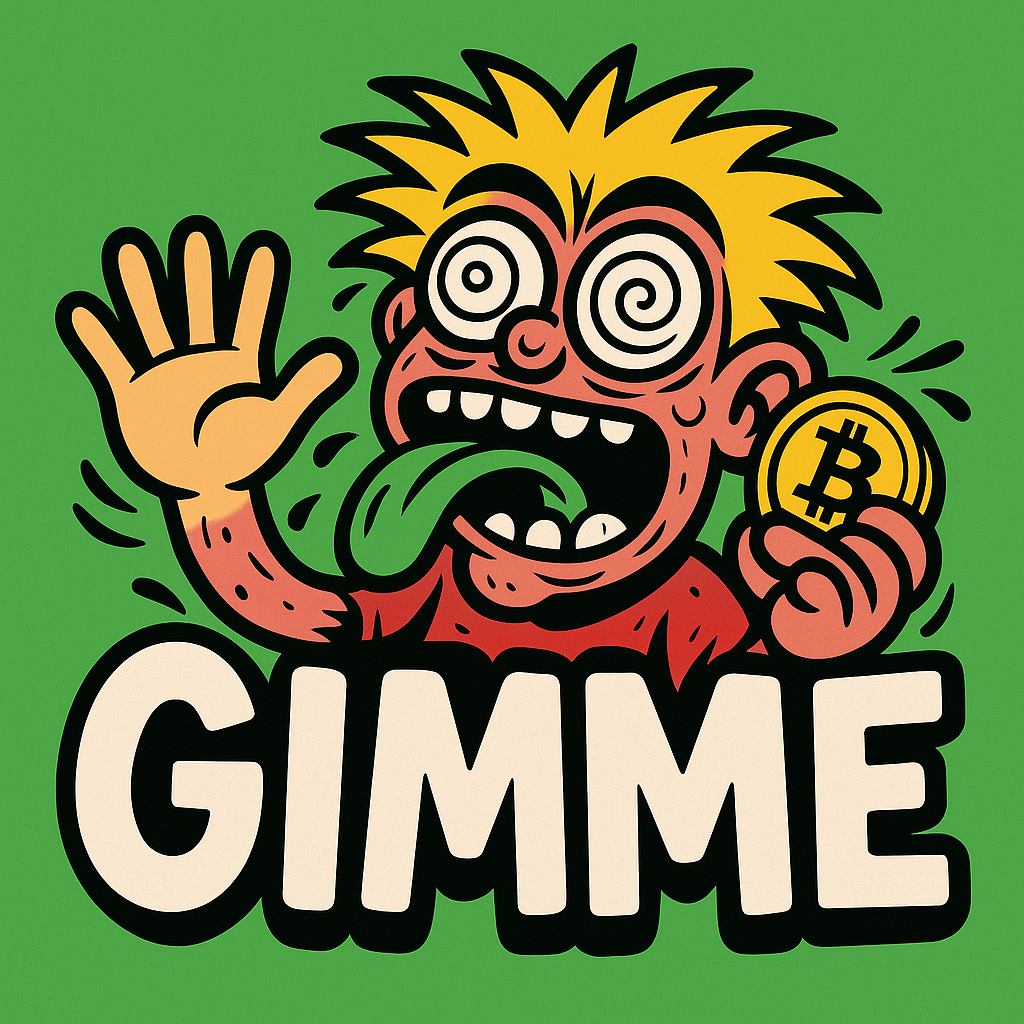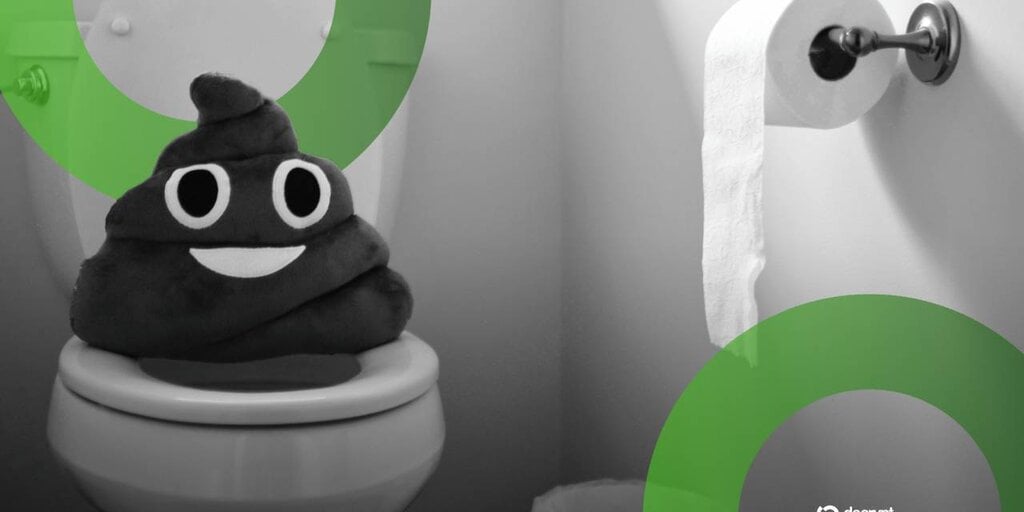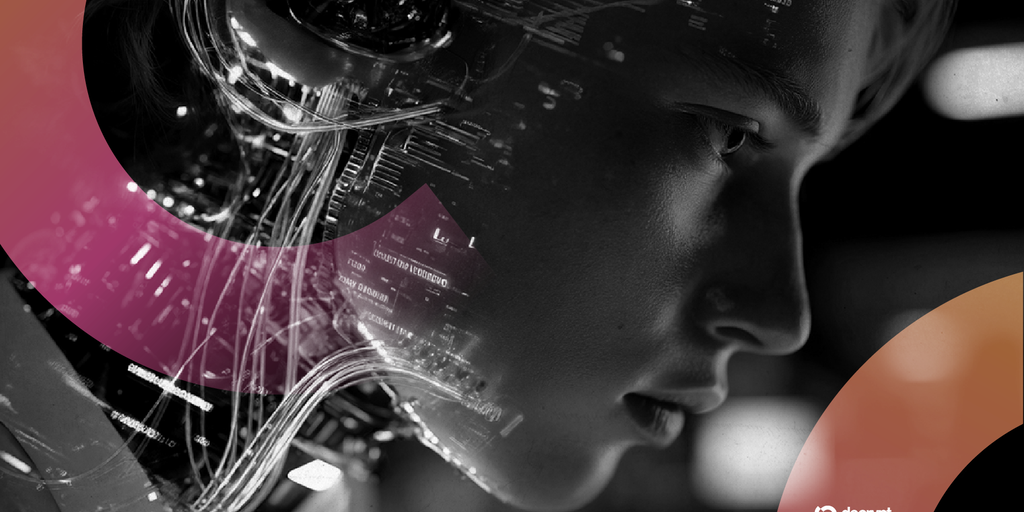
In brief
- Doop, an app that pays users to take photos of their poop, is expected to launch its public beta this fall.
- It will use an AI agent to analyze the photos to provide custom tips and challenges based on the results.
- Further down the line, the dataset will be sold to organizations and companies in an attempt to further research.
Have you ever finished pooping and wished there was something you could do with the masterpiece you’ve just left in the loo? Well, an upcoming app will pay you to take a photo of it.
Doop is an AI-powered health app that will pay users in cryptocurrency for consistently uploading photos of their poop. These images will then be analyzed by an AI agent, which will set challenges for users to improve their gut health. The app is scheduled to release in public beta this fall, with a waitlist already open.
While the concept may sound hilarious or even ridiculous at first, Doop says that it has a serious goal behind the poop-tography—so much so that it has raised an undisclosed amount via an angel fundraising round, with participation from pseudonymous crypto investor Dingaling, the founder of meme coin launchpad Boop
“People don’t pay attention to poop, but it’s scientific gold because it’s a direct reflection of your diet, your healthstyle, lifestyle, and everything,” Joe Zhou, the founder of Doop, told Decrypt.
We’re not another health tracker 💩
Doop is a daily engagement engine that combines behavioral psychology, delightful design, and tokenized incentives to make self-care instinctive.
Think:
Health + Memes + Rewards → A habit you want to keep pic.twitter.com/Fr9uESvr96
— DoopApp (@DoopApp) August 11, 2025
He explained that most people only go to the doctor a couple of times a year, which creates infrequent snapshots of an individual’s health. Some may wear a fitness watch or smart ring that regularly tracks health data, but Doop aims to go a step further.
By tracking someone’s bowel movements every day for an extended period, Zhou believes that interesting trends, behaviors, and remedies will reveal themselves.
Users will be paid based on how regularly they provide images of their waste, complete health-based challenges set by the app, and if they improve their poop samples. Rewards will be paid out in the project’s Solana-based POOP token, which launched in July and currently sits at a nearly $6 million market cap. Doop will also upsell a premium tier of the app for more in-depth AI analysis.
Zhou told Decrypt that the project is based on several studies and research papers on the importance of healthy bowel movements. Those findings have been run through a custom AI agent, which utilizes an OpenAI and an in-house model, to provide custom tips on how to improve gut health.
However, it is worth noting that just an image of an individual’s faeces only reveals so much about the person.
“A photo alone cannot tell you if you have inflammation, infections, low digestive enzymes, blood in the stool, or an imbalance in your gut bacteria,” Nishtha Patel, gut expert and award-winning nutritionist, told Decrypt. “For this, you need a proper stool test where a swab or full sample is sent to a laboratory. This allows for a detailed look at your microbiome, digestive function, and gut health markers.”
That said, Patel explained that a photo can give some “useful clues” that can be investigated or acted upon. Zhou added that, in the distant future, there could be scope for an add-on that could inspect stool samples deeper than an image can.
“Apps that analyze stool images may be an interesting starting point, but they do not replace medical testing or professional advice,” Patel said. “It is also important to check how your personal data will be stored and used, especially if it will be shared or sold to other companies.”
Zhou told Decrypt that Doop will sell user data once it achieves approximately 500,000 monthly active users—although all data will be anonymized. Doop will look to sell the dataset to research institutions, insurance firms, or health supplement companies.
Data collected will include details like personal identifiers, like sex, height, and weight, as well as lifestyle choices and factors that impact your bowel movements. The user can choose to delete their data at any time they want, Zhou added.
The vision is that Doop could amass the largest and most detailed faecal dataset in the world, which could create a new frontier of health research. To this goal, the app plans to regularly release reports with interesting findings from its dataset, such as whether a specific city’s residents have worse gut health than another’s—possibly prompting an investigation into why.
But, for now, Doop’s methodology has yet to receive a stamp of approval from any gut health professionals. Zhou told Decrypt that the app is “in talks” with university professors to endorse the project’s methodology. Such endorsements are key as the app will give out health advice via its AI agent, incentivizing people to follow the tips via token payments.
Generally Intelligent Newsletter
A weekly AI journey narrated by Gen, a generative AI model.



